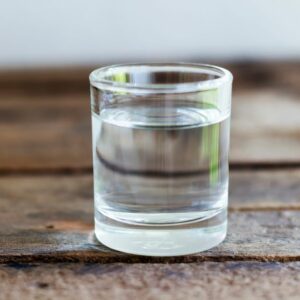Nutrition & Hydration
Good nutrition in any age group—eating a healthy and balanced diet—cannot be underestimated. When it comes to seniors, healthy eating can mean the difference between adequate energy levels, good brain health, quality of life, and a prolonged lifespan vs. the alternatives.
There are changes in the body as we age, affecting what we need to remain in good health. Some seniors require more protein, though most tend to need fewer calories. That doesn’t mean taking away essential vitamins and minerals, however. Striking the right balance may require a reassessment with a doctor or nutritionist.

Issues
Some of the issues that impact how seniors relate to food include medication, which they tend to need more of. Unfortunately some are known to alter taste, cause dry mouth, or decrease appetite overall. What’s more, aging can also come with a diminution of taste and smell which makes people more likely to reject food or consume far too little when the pleasure associated with eating is gone. If that is the case, it’s important to find a way to ingest enough calories from healthy food, perhaps with the use of stronger herbs, sauces, and seasonings to ratchet up flavor—though staying away from excess salt should be a priority.
Where cognition is concerned, without enough or the right type of fuel, i.e. what is derived from the kind food we eat, the brain cannot function optimally. Refined sugar, excess carbohydrates and caffeine, processed food, alcohol, fast food, and other less-than-desirable food fuel sources will not only affect cognition but may speed the aging process—something none of us wants.
Our Brains
Experts tell us our brains begin to shrink in our 30s and 40s, with the rate of volume loss increasing at around age 60. It’s up to seniors to support the loss of brain cells with a steady diet of adequate protein, carbohydrates, healthy fats, and the vitamins and minerals found in fruits and vegetables.
Hydration
There isn’t a species on earth that can live without water. Even freshwater fish absorb it through their skin and gills in a process known as osmosis. Where saltwater fish are concerned, they need to drink water to get enough hydration to survive.

The importance of proper hydration cannot be over-emphasized. Hydration is vital to everyone, as it keeps electrolytes balanced ad blood volume normal, aids in digestion and nutrient transport to cells, and crucial kidney function. Kidneys filter out waste from our blood, which affects the balance of fluids in our bodies and keeps electrolytes at optimal levels. Aging can diminish kidney function, so staying hydrated can help stave off negative effects such as the lack of ability to create urine.
Lack of hydration can also result in confusion, something many seniors increasingly face. It can show up in dry skin or cracked lips, manifest in fatigue, light headedness, dry mouth, sunken eyes, low blood pressure, rapid heart rate, and inability to sweat or produce tears.
To compound the problem of not getting enough water, aging can cause a diminution of the sense of actually feeling thirsty. In order to compensate for this, it’s important to make sure to have a pitcher of water standing by at all times and to get in the habit of drinking through it, refilling it several times throughout the day. Some sources recommend men drink 10 cups of water a day and women drink 8 cups. If that’s not manageable, coming as close as possible to the goal is important.
